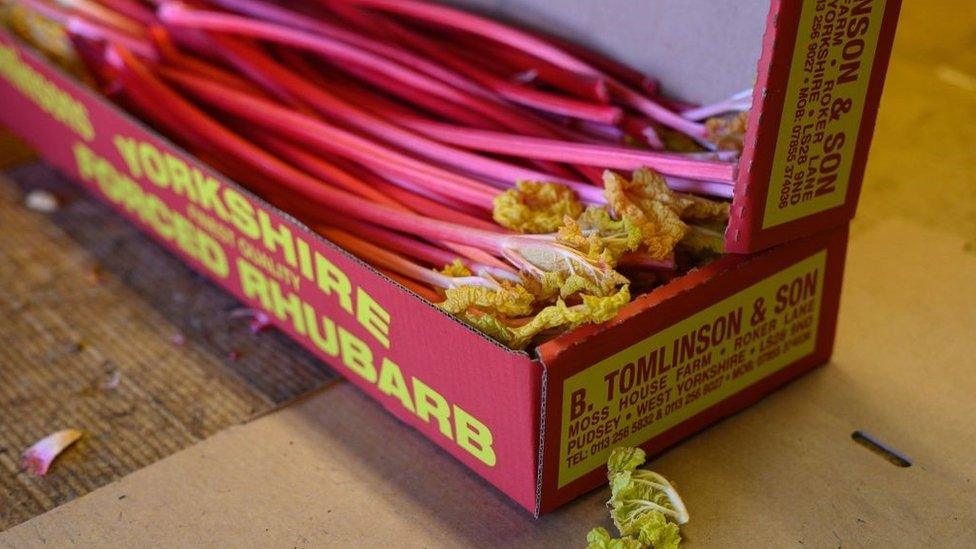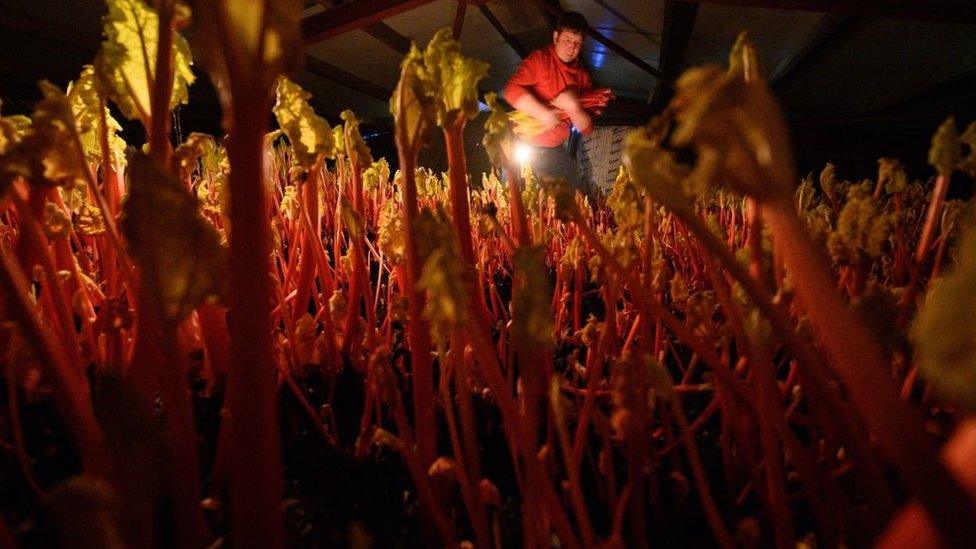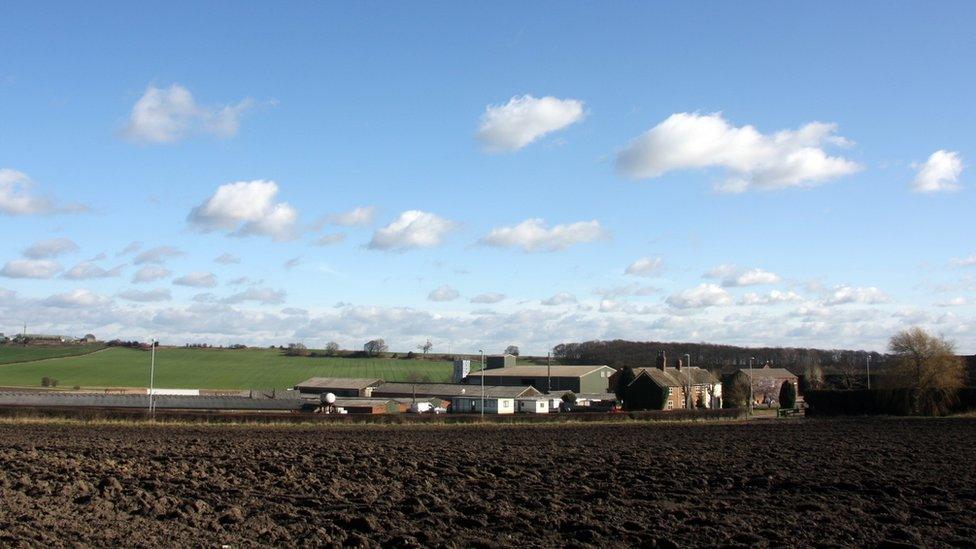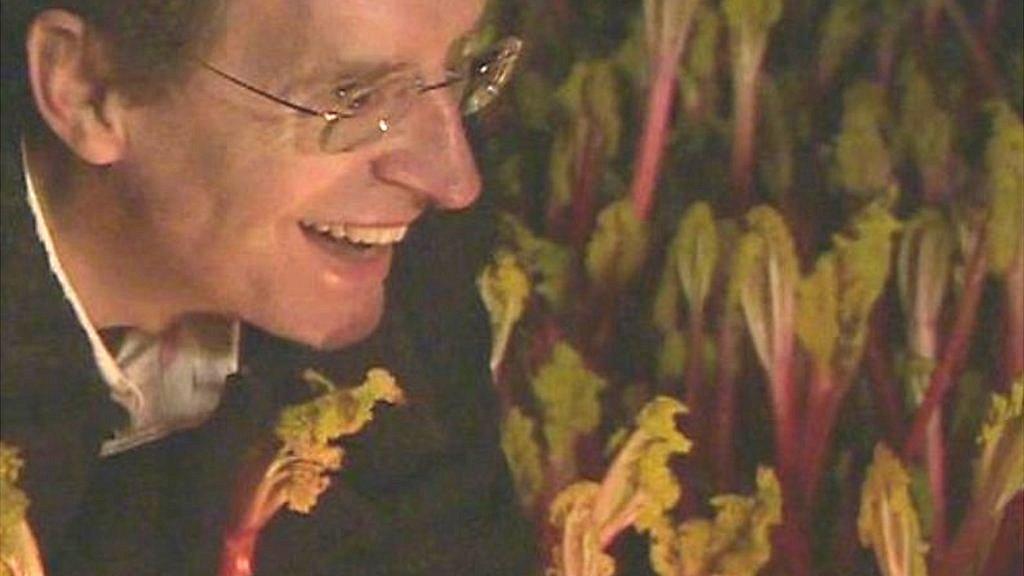Wakefield turns pink to celebrate its rhubarb roots
- Published

The forcing of rhubarb began in Yorkshire in 1877
Wakefield is set to turn pink with the return of an annual festival celebrating its rhubarb roots.
The versatile vegetable has been produced for more than 150 years in a nine-square-mile area of farmland between Wakefield, Morley and Rothwell, dubbed the Rhubarb Triangle.
Much of it is grown in dark forcing sheds, where the rhubarb can even be heard sprouting.
The city's Rhubarb Festival runs from 16 to 18 February.

West Yorkshire one produced 90% of the world's winter rhubarb
Although native to Siberia, rhubarb thrives in the wet, cold winters of Yorkshire and is grown in special sheds in a process known as "forcing".
Rothwell farmer Janet Oldroyd-Hume said the process of growing Yorkshire forced rhubarb involves growing it outside until the root gets "strong and healthy" before it is brought into the sheds where it continues to grow from its own energy before being harvested by candle light to help preserve its colour.
"They're not using soil, they're not using sunlight. It's all a major trick, because what makes the plants grow in spring is the rising temperatures that trigger its hormones to say 'wake up, let's get going'," she said.
Ms Oldroyd, who is known as the "high priestess of rhubarb", said originally the forcing sheds were heated by the coal from local mines in the Rhubarb Triangle.
She added: "In ancient times rhubarb was said to be a gift from a God. Where else would a gift from God grow better than God's own country?"

There used to be more than 200 growers in the Rhubarb Triangle area
Wakefield Council said the city's famous festival would be "packed with a programme of events for all the family."
There will be more than 50 stalls where people can taste local produce, as well as demos from chefs and street entertainment.
Restaurants and bars across the city are also putting on rhubarb-themed food and drink throughout the weekend.

Follow BBC Yorkshire on Facebook, external, X (formerly Twitter), external and Instagram, external. Send your story ideas to yorkslincs.news@bbc.co.uk, external.
- Published4 February 2016
